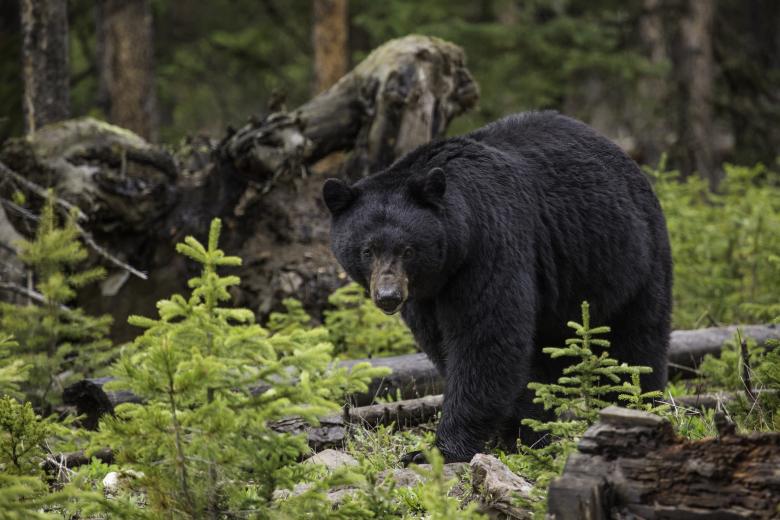
Black Bear Legal Status & Management
In most U.S. states and Canadian provinces where they are found, black bears are legally classified as a game animal and can be hunted. Dave Garshelis (Minnesota DNR) reports that black bear hunters legally harvest 50,000 North American bears each year. Black bears are also illegally killed for their gall bladders, paws, claws and genitalia for use in traditional Asian medicines. It is unknown how many black bears are poached in North America.
Status in Washington
The black bear population in Washington is estimated to be as high as 20,000. Black bear are classified as a game animal in the state (WAC 232-12-007) and approximately 1,440 bears are harvested per year [Note: it is illegal to kill a grizzly bear in Washington State unless in self-defense or defense of other people.]
As stated on the Washington Department of Fish and Wildlife website, a hunting license and open season are required to hunt black bears. A property owner or the owner’s immediate family, employee, or tenant may kill a bear on that property if it is damaging crops or domestic animals. You must notify your local Department of Fish and Wildlife (WDFW) office immediately after taking a black bear in these situations (RCW 77.36.030).
The killing of a black bear in self-defense, or defense of another, should be reasonable and justified. A person taking such action must have reasonable belief that the bear poses a threat of serious physical harm, that this harm is imminent, and the action is the only reasonable available means to prevent that harm. Any bear that is killed, whether under the direct authority of RCW 77.36.030, or for the protection of a person, remains the property of the state and must be turned over to WDFW.
Threats to Black Bears
Because of their adaptability, black bears can live in close proximity to human development which often leads to conflict between bears and people. During years of berry crop failure, bears will frequent municipal garbage dumps and household garbage cans looking for food. Once they become habituated to humans or begin to be seen as a threat to people or pets, they can be relocated or even killed by the wildlife authorities.
As more housing developments and roads are built on the fringes of the urban areas in western Washington, black bears are losing habitat, and opportunities for them to pursue their natural food sources are becoming more limited. This is resulting in increased interactions between black bears and humans. Shifts in the distribution of their food sources could cause an increase in conflicts as they seek out new, suitable habitat. A large network of interconnected, wild lands would reduce the risk of conflict.

